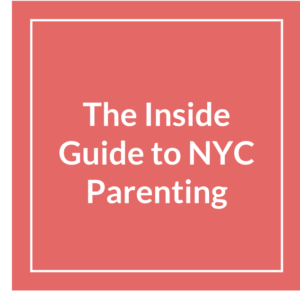 Are you in partnership with your children’s teachers to make sure your children are thriving in school? In today’s second session of “The Inside Guide to Helping Your Child Thrive from K-8″, Lower school teacher Jennifer Vermont-Davis offered parents advice on how to establish strong and productive relationships with teachers each year. Here just are a few of her many helpful tips:
Are you in partnership with your children’s teachers to make sure your children are thriving in school? In today’s second session of “The Inside Guide to Helping Your Child Thrive from K-8″, Lower school teacher Jennifer Vermont-Davis offered parents advice on how to establish strong and productive relationships with teachers each year. Here just are a few of her many helpful tips:
Early and frequent communication with your child’s teachers is key. Go to school early in the year and introduce yourself to all of them: the principal teacher (or the home room teacher), and all the specialists: science, reading, art, music, etc. Let them all know that you are glad that they are part of your child’s teaching team this year. Get their email addresses and let them know that you will be keeping in touch.
Communicate with teachers when things are going well, not just when there is an issue. If your son or daughter comes home excited about something he or she has learned that day, you can let the teacher know and even ask if there is a way you can supplement the lessons at home.
What if there is an issue? If the teacher contacts you about an academic issue your child is having, first take a deep breath and put aside the natural anxiety and/or defensiveness. Meet with the teacher as soon as possible and be prepared to ask as many questions as necessary to understand the root of the problem. What are the expectations, how is your child not meeting them? Is the teacher making him or herself available for help after class? What is the teacher’s plan to help your child better understand the work and become more comfortable and confident doing it, and how can you support this plan at home? How will you follow up with the teacher to check progress?
Be Cautious of the “Bad Teacher” Label: Don’t put too much faith in what other parents say about which teachers to avoid. If your child is assigned a teacher that you have heard not great things about, try to interact with that teacher one on one to get a sense of him or her before passing judgment. Get more than one or two opinions—do people not like the teacher’s personality or do they believe he or she is incompetent? Be more concerned about the competency than the personality.
Watch What You Say: Don’t talk badly about teachers with large groups of people in public settings. This invariably will get back to the teacher. It is not good for your child to hear you bad mouth a teacher, especially if he or she is in their class. Of course, if there are serious issues that you can document, have a confidential conversation with the head of the division.
Keep Your Eyes on the Prize: Remember that teachers want to partner with parents to educate their children. Parents who focus on assigning blame rather than looking for solutions are not being good partners. Working together to determine the best outcomes for your child is the goal.
We had a great two class session on helping our children thrive from K-8. Classes at Hunter College for the next two weeks will focus on “The Inside Guide to College Admissions”. Stay tuned!





